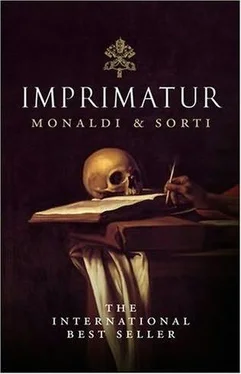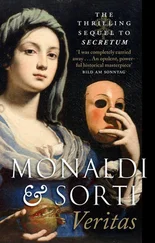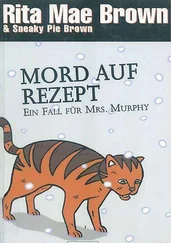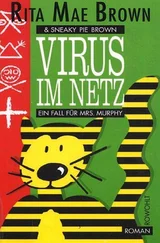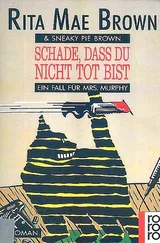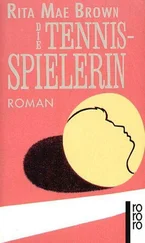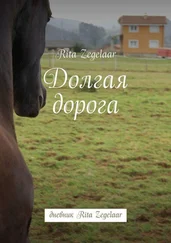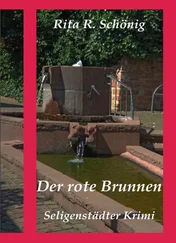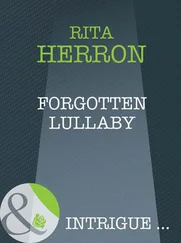Rita Monaldi - Imprimatur
Здесь есть возможность читать онлайн «Rita Monaldi - Imprimatur» весь текст электронной книги совершенно бесплатно (целиком полную версию без сокращений). В некоторых случаях можно слушать аудио, скачать через торрент в формате fb2 и присутствует краткое содержание. Жанр: Исторический детектив, на английском языке. Описание произведения, (предисловие) а так же отзывы посетителей доступны на портале библиотеки ЛибКат.
- Название:Imprimatur
- Автор:
- Жанр:
- Год:неизвестен
- ISBN:нет данных
- Рейтинг книги:5 / 5. Голосов: 1
-
Избранное:Добавить в избранное
- Отзывы:
-
Ваша оценка:
- 100
- 1
- 2
- 3
- 4
- 5
Imprimatur: краткое содержание, описание и аннотация
Предлагаем к чтению аннотацию, описание, краткое содержание или предисловие (зависит от того, что написал сам автор книги «Imprimatur»). Если вы не нашли необходимую информацию о книге — напишите в комментариях, мы постараемся отыскать её.
Imprimatur — читать онлайн бесплатно полную книгу (весь текст) целиком
Ниже представлен текст книги, разбитый по страницам. Система сохранения места последней прочитанной страницы, позволяет с удобством читать онлайн бесплатно книгу «Imprimatur», без необходимости каждый раз заново искать на чём Вы остановились. Поставьте закладку, и сможете в любой момент перейти на страницу, на которой закончили чтение.
Интервал:
Закладка:
Pope Innocent will not, however, be repeating that miserable business. He expired ten years ago, after a long and painful agony. The autopsy showed that his bowels had rotted and his kidneys were full of stones. Someone has already proposed that he should be held up as an exemplar and beatified.
Pompeo Dulcibeni has left us, too. He died this year, as a good Christian, after much prayer and sincerely repenting his sins, which were not few. It happened one day in April; we had perhaps eaten rather more than we should and he (who was always too red in the face and had, in his last years, tended to partake too much of the bottle) asked me to help him to bed, so that he might take a little rest. He never rose again.
What I am today, I believe that I owe in great part to him: he had, so to speak, become my new mentor, God only knows how different from Abbot Melani. Thanks to his long and sorrow-laden sojourn on this earth, Pompeo was able to reveal much to me of his life and sufferings, while always seeking to transmit all that he told me with the comforts of the Faith and in the fear of God. I have read all the volumes which he gave me: books of history, theology, poetry and even medicine, along with some containing the rudiments of the science of commerce and business ventures, in which Dulcibeni was so deeply versed and which, these days, one can no longer permit oneself to ignore. This makes me think that I may perhaps have penned these memoirs of former times with today's thoughts in my mind, often attributing to the poor, destitute prentice of the Donzello words and cogitations with which God has graced me only of late.
I have, moreover, found that my greatest discoveries came, not from the tomes of political or moral doctrine, but from those of medicine. I have burned much midnight oil to convince myself that I was, in reality, never immune to the plague, as Cristofano had assured me at the beginning of our quarantine; my unfortunate condition in no way protected me from infection. The doctor had lied, perhaps in order to avail himself of my services, and had invented everything: from the fable of the sodomising African homunculus to the classifications of Caspar Schott, Fortunius Licetus and Johannes Eusebius Nierember- gius, in none of whose works did I find any mention of my supposed immunity. Cristofano knew perfectly well that stature bears no relation to the pestilence. Against infection, it avails me nothing to be what I am, a poor dwarf: "a source of amusement for princes and of astonishment for fairground idlers", as Dulcibeni once put it so scornfully.
I shall, nevertheless, always be grateful to Cristofano: thanks to his venial lie, my pygmy breast was blown up with pride. That was never to recur. My cruelly diminutive stature resulted only in my being abandoned at an early age and the derision of the entire human race; and that, despite the fact that-as Cristofano once stressed-I was to be counted among the more fortunate of my kind, the mediocres in stature, and not the minores or, worst of all, the minimi.
When I look back to the adventure of the Donzello, the mocking laughter of the Bargello's men still rings in my ears, as they shoved me violently into the hostelry at the start of the quarantine: and then, there was Dulcibeni, who amused himself by ascribing to me the Latin tag of pumilio, or "little dwarf". I can still see, as though he were there, the obscene vice of Brenozzi, pinching the celery between his thighs, just at the height of my nose; and the corpisantari when they mistook me for one of the daemunculi subterranei, the minuscule demons which people their nightmares. And I can see myself, almost as though I had been created for that underworld, as I moved agilely before Atto through the narrow tunnels under the hostelry.
In those days at the Donzello, my unhappy condition weighed upon me not less than throughout the rest of my life. I have, however, preferred to leave that in the shadows in my evocation of the great theatre of those events; who would ever accord the slightest credence to the words of one whom only a few wrinkles differentiate from a small boy?
Dulcibeni's revelations have, in the time that has intervened, been confirmed by the facts. The nephew of Innocent XI, Livio Odescalchi, who was the Pope's sole heir, has for a derisory price purchased from the Emperor the Hungarian fief of Sirmio (acting, so it is whispered in Rome, against the advice of the officials of the Imperial Household). To add to the lustre of that most profitable transaction, the Emperor even made him a Prince of the Holy Roman Empire. Yet, every excessive gift always, it is said, hides the repayment of a favour. So it was true: the Emperor too was indebted to the Odescalchi. Now he has repaid that money with interest.
Livio Odescalchi himself seems to feel no shame for his odious and bare-faced trafficking. Upon the death of Innocent XI, it is said that his fortune amounted to more than a million and a half scudi, as well as the fief of Ceri. He at once laid his hands on the dukedom of Bracciano, the marquisate of Roncofreddo, the county of Montiano and the lordship of Palo, as well as on the Villa Montalto at Frascati. He was even on the point of buying the fief of Albano, but the Apostolic Chamber itself managed in extremis to snatch the transaction from him. Finally, after the death of King Jan Sobieski, the victor of Vienna, Livio attempted to succeed him on the throne of Poland with an offer of eight million florins.
There is no point in waxing indignant: money-that infamous scourge, without land and without pity-has never ceased to corrupt Europe and will ever more trample underfoot the honour of the Faith and of crowns.
I am no longer the innocent boy of those days at the Donzello. The things I then saw and heard, and which I shall never be able to reveal to anyone, have marked my life forever. The Faith has not abandoned me; yet, inevitably, the sentiments of devotion and fidelity which every good Christian should foster for his Church have been forever corrupted.
The act of confiding my memories to these pages has, if nothing else, helped me to overcome the moments of greatest discomfort in my life. The rest has been provided for by prayer, the companionship of Cloridia and the reading with which I have nourished my spirit over the years.
Three months ago, Cloridia and I were at last joined in matrimony: we seized upon the opportunity when a mendicant friar arrived in our wretched locality.
A few days ago, I sold a few bunches of grapes to a cantor from the Sistine Chapel. I asked him if he ever happened to sing arias by Luigi Rossi.
"Rossi?" he replied, furrowing his eyebrows. "Ah yes, I think I have heard that name, but it must be old stuff, from the days of the Barberini. No," he added, laughing, "nowadays no one remembers him: today in Rome, all glory goes to the great Corelli, did you not know that?"
Only now do I realise how I have let the years flow past beyond the threshold of my little house. No, I do not know that Corelli; but I do know that I shall never forget the name of the Le Seigneur Luigi or the sublime accents of his arias, which were already out of fashion when Abbot Melani evoked them for himself and for me.
From time to time, sometimes even in my dreams, I recollect the voice and sharp little eyes of Atto Melani, whom 1 imagine bent by age in his house in Paris, that spacious house in which he had once invited me to go and live.
Fortunately, the weariness of my labours banishes nostalgia: our farm has grown and there is always more work. Among other things, we sell fresh vegetables and good fruit to the nearby villa of the Spada family, where they often call upon me for some other services.
Whenever my work allows, however, I turn to my memories of Atto's words and repeat to myself that phrase of his about solitary eagles and flocks of crows, inwardly seeking to reproduce the tone, the intonations and the intentions, although I know them to be both audacious and ill-advised.
Читать дальшеИнтервал:
Закладка:
Похожие книги на «Imprimatur»
Представляем Вашему вниманию похожие книги на «Imprimatur» списком для выбора. Мы отобрали схожую по названию и смыслу литературу в надежде предоставить читателям больше вариантов отыскать новые, интересные, ещё непрочитанные произведения.
Обсуждение, отзывы о книге «Imprimatur» и просто собственные мнения читателей. Оставьте ваши комментарии, напишите, что Вы думаете о произведении, его смысле или главных героях. Укажите что конкретно понравилось, а что нет, и почему Вы так считаете.
